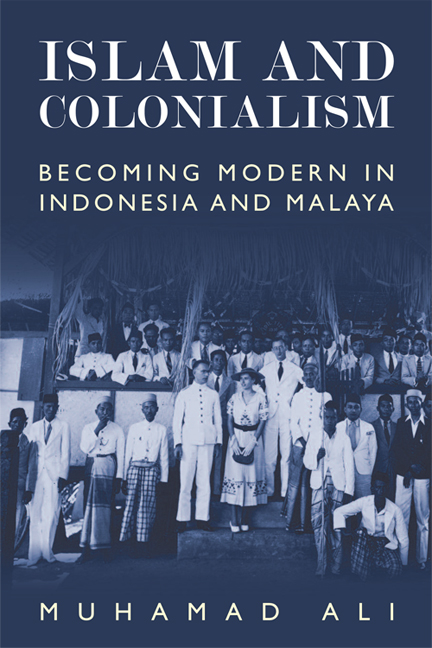Book contents
- Frontmatter
- Contents
- Glossary
- Acknowledgements
- List of Abbreviations
- Transcriptions and Orthography
- Map
- Introduction
- Part I Making Islam Modern
- Part II Modernising Politics and Government
- Part III Modernising Law
- Part IV Modernising Education
- VII Teaching Agama and the Secular
- VIII Secularising Education
- Conclusion
- Bibliography
- Index
VII - Teaching Agama and the Secular
from Part IV - Modernising Education
Published online by Cambridge University Press: 05 September 2016
- Frontmatter
- Contents
- Glossary
- Acknowledgements
- List of Abbreviations
- Transcriptions and Orthography
- Map
- Introduction
- Part I Making Islam Modern
- Part II Modernising Politics and Government
- Part III Modernising Law
- Part IV Modernising Education
- VII Teaching Agama and the Secular
- VIII Secularising Education
- Conclusion
- Bibliography
- Index
Summary
The schools were ‘not intended to cultivate hatred against the government schools,’ but to teach children about their ‘religion and nation,’ in order to advance the nation and bring them civilization.
(M. Ask Hidajat, Al-Wafd, PSII Makassar, 1933)Who has believed that religious knowledge will benefit us in both this world and the hereafter, while the knowledge of other things will only benefit us in this world?
(Aqi, Pengasuh, Kelantan, 1930)The religion–secular dichotomy emerges within Muslim contexts, too. In the early twentieth century, reformers began pushing to establish more schools, contending that a broad education in a variety of subjects (belonging to the religious and the worldly) was a path to empowerment and progress for local Muslims and the nation at large. A teacher in South Sulawesi, for example, wrote an essay in the journal Al-Wafd urging his party, PSII, to establish more madrasah (schools) to serve the towns of Mandar and Sinjai. He explained that although people in these Muslim communities ‘have attended numerous sermons in the mosques’ they were still ‘without strong Islamic faith’. To emphasise his point, he quoted the Dutch saying, ‘kennis is macht [knowledge is power]’. The goal of Muslim education was not to re-establish the Islamic caliphate or promote Islamic political unity; the goal was to encourage people in the East Indies and in Malaya to be ‘better Muslims’ by teaching, ta'lim or pengajaran. In these efforts, Muslim reformers, particularly modernist but also traditionalist, were open to new developments in educational subjects, vocabularies and technology, as long as they did not see any violation of Islamic principles.
Distinguishing Ilmu Agama from Ilmu Dunia
Muslim reformers in colonial Indonesia and Malaya distinguished different types of knowledge and the values that they put on education. It also examines school organisation, curricula and pedagogy, which combined various sources of knowledge and practice. Native Muslims from the Jawi land who travelled to Mecca or Cairo to study tended to focus on religious learning rather than secular knowledge, a distinction that had existed in Islamic schools and college-mosques since before medieval times but that became reinforced in the colonial context. Upon returning home, these ‘ulama as educational reformers maintained the broad Islamic division between religious knowledge (ilmu agama) and worldly knowledge (ilmu dunya).
- Type
- Chapter
- Information
- Islam and ColonialismBecoming Modern in Indonesia and Malaya, pp. 223 - 255Publisher: Edinburgh University PressPrint publication year: 2015



